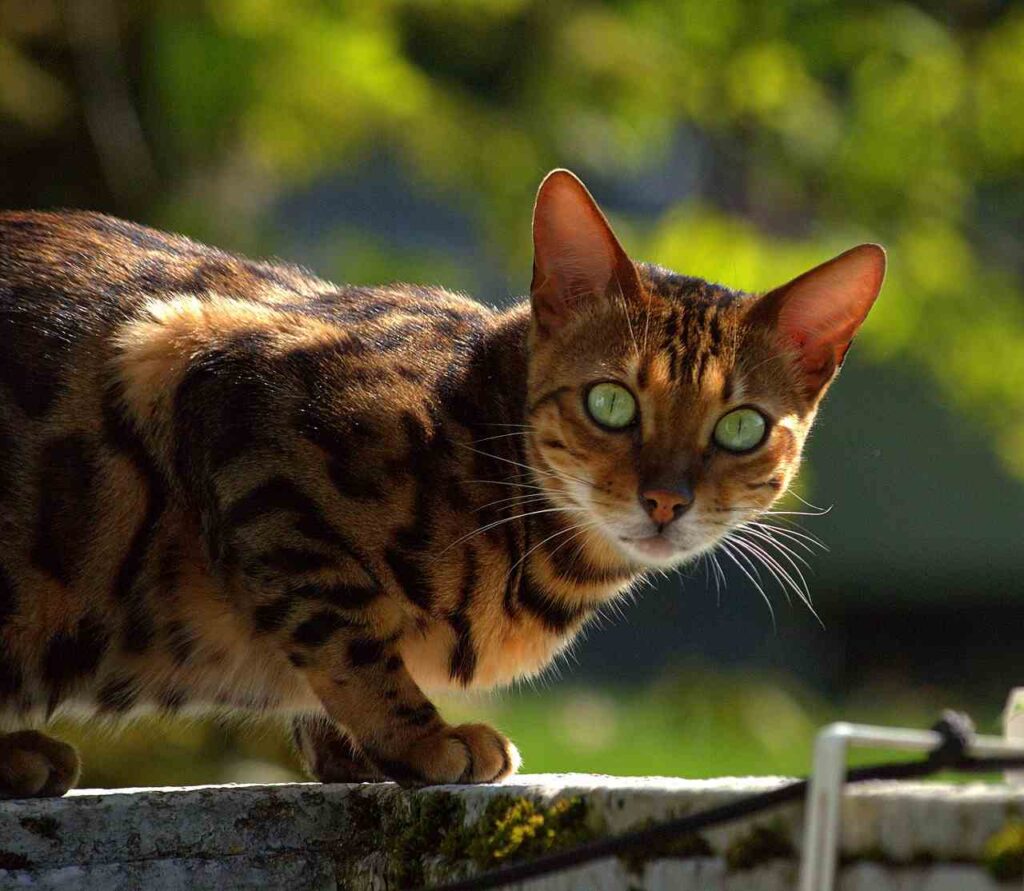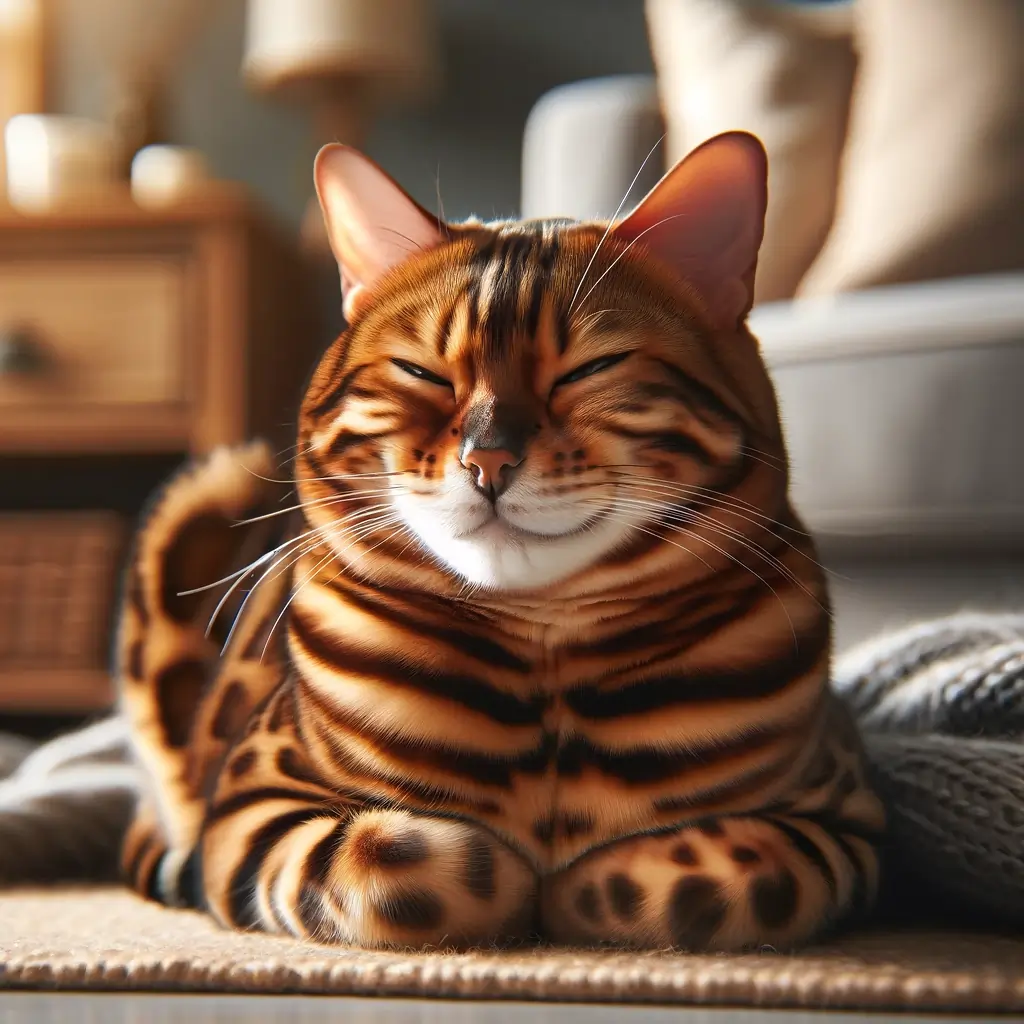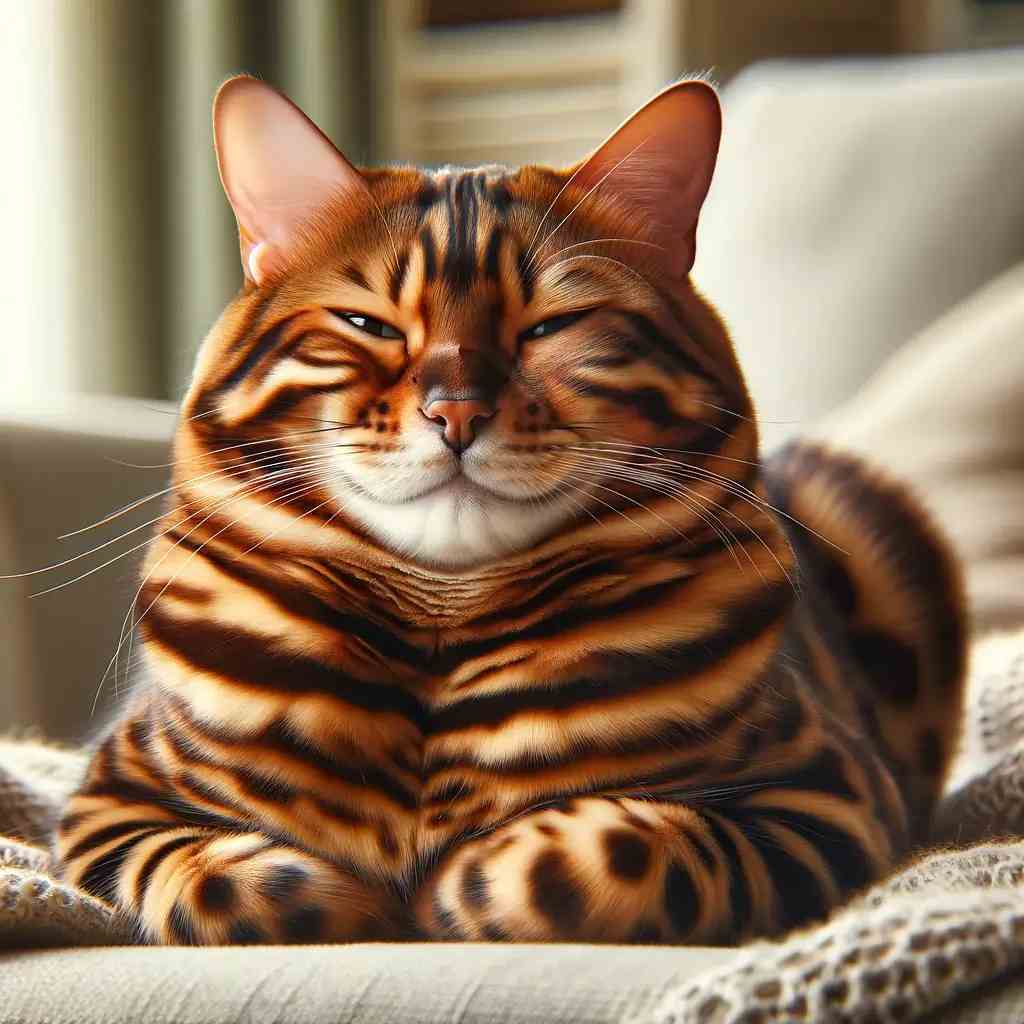Bengals are known for their exotic looks, playful personalities, and dog-like traits. But one question that often arises among cat enthusiasts is, “Do Bengal cats purr?” The answer is a resounding yes! However, their purring has some unique characteristics that set them apart from other domestic cats. In this blog post, we’ll dive into the fascinating world of Bengal cat purring and explore the reasons behind this endearing behavior.
Bengal cats are known for their vocal nature and expressive communication, often purring just as much as other cat breeds but with a distinctively louder volume. As an affectionate breed, Bengals frequently use purring, along with other vocalizations like chirrups, meows, and chirps, to convey their emotions and feelings to their owners, especially when in their presence, compared to when alone.
While Siamese cats are known for their talkative nature, which is thought to be linked to their intelligence, Bengal cats also share these vocal traits. Like all cats, Bengals will purr when they are happy, content, and relaxed, especially when being petted or scratched in their favorite spots. However, it’s important to note that purring in Bengals may not always indicate positive emotions, as there are specific instances where they may purr due to other reasons that are not as pleasant.
Why Do Bengal Cats Purr?
Now that we know Bengals do indeed purr, let’s explore the various reasons why they engage in this behavior. Like other cats, Bengals purr for a multitude of reasons, ranging from expressing contentment to self-soothing in stressful situations.
1. Expressing Happiness and Affection
One of the most common reasons Bengals purr is to express their happiness and affection towards their human companions.
When you’re petting your Bengal or providing them with a cozy lap to snuggle on, they may start purring to show their appreciation and contentment. This purring is often accompanied by other signs of affection, such as rubbing against you, kneading, or even licking your hand.
2. Communicating with Their Kittens
Mother Bengals use purring as a way to communicate with their kittens from the moment they’re born.
Since newborn kittens are blind and deaf, purring serves as a guiding sound that helps them locate their mother and the all-important milk supply. This early exposure to purring also helps establish a strong bond between the mother and her kittens.

3. Self-Soothing and Stress Relief
Bengals, like other cats, may purr as a coping mechanism when they’re feeling anxious, stressed, or in pain.
The low-frequency vibrations produced by purring are believed to have therapeutic effects, helping cats calm themselves and even promoting healing. So, if you notice your Bengal purring in a stressful situation, such as a vet visit, they’re likely trying to soothe themselves.
4. Requesting Attention or Food
Bengals are known for their talkative nature, and purring is just one of the many vocalizations they use to communicate with their humans. Sometimes, a Bengal may purr to get your attention, whether they want to play, be petted, or are trying to tell you it’s mealtime. Pay attention to your cat’s body language and the context of their purring to decipher what they’re trying to convey.
The Healing Power of a Bengal’s Purr
Research suggests that cat purring may have healing properties for both cats and their human companions. Studies have shown that the frequency of a cat’s purr, which ranges from 25 to 150 Hz, corresponds with the frequencies used in therapeutic treatments for bone growth, wound healing, pain relief, and muscle relaxation.
While more research is needed to understand the extent of these healing properties fully, it’s clear that spending time with a purring Bengal can have positive effects on our physical and emotional well-being. So, the next time your Bengal curls up on your lap and starts purring away, take a moment to appreciate the therapeutic benefits of this enchanting sound.

Conclusion
In conclusion, Bengal cats do purr, and they do so for a variety of reasons. From expressing happiness and affection to self-soothing and communicating with their kittens, purring is an essential part of a Bengal’s vocal repertoire. While their purrs may vary in volume and intensity, one thing remains constant: the undeniable charm and comfort that a purring Bengal brings to our lives.

Hey guys, My name is Simon Smith. I’m from Canada and live near Victoria
I live with my sweet family and have 20+ Ragdolls of different types. I love them as my own children. My profession is as a hotel manager.
I love to keep Ragdolls and grow their breeder case. I have 7 years of experience.
I’m an expert in cat care. So, I’m here to provide you with new information about my cats daily. This is my personal blog website, so I request that you kindly visit our site daily.
If you’re a Ragdolls lover and you have any questions or confusion about cats, text me on the Contact Us page or Gmail.
Thank u
